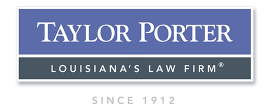La. Dept. of Health Issues Guidance on Mold Removal
August 30, 2016
The Environmental Protection Agency and the Centers for Disease Control and Prevention recommend that trained mold remediation professionals do the mold clean up if mold growth covers more than 100 square feet, or a 10-by-10 foot area. For a list of licensed professionals, visit the Louisiana Licensing Board for Contractors’ website.
Breathing in mold can lead to health effects similar to seasonal allergies. Those with asthma may be more susceptible to the allergic effects of mold. If the area of mold growth is small enough to clean yourself, ensure that you have appropriate personal protective equipment before starting. Wear gloves, a breathing mask and eye protection. Know the symptoms of heat-related illness and what you should do.
Take the following steps to clean mold in your home:
- Shut off all heat or air conditioning to stop mold spores from spreading around the home or building. If possible, turn on a fan in a window to exhaust the air to the outdoors.
- Remove, bag, and throw out porous materials that have heavy mold growth (i.e. ceiling tiles, leather, sheetrock and insulation, plaster, paneling, wood products, paper, carpet, padding, etc.). Hard surfaces can be cleaned.
- To clean, use detergent in hot water and scrub the moldy area. Use a hard brush or cleaning pad on hard surfaces. Never mix bleach and ammonia cleaners, as this will create a toxic gas.
- Rinse the whole area with hot water. A wet-dry vacuum can be used to pick up extra water.
- Fully dry the area for two to three days. This is extremely important, as mold will return in areas with dampness. Raising the temperature and using dehumidifiers and fans will help speed drying.
- Vacuum your home with a HEPA-filtered vacuum, if available.
For more guidance on mold removal, see the LDH mold brochure here. Find a comprehensive field guide for cleaning up a flooded home here.
The Louisiana Department of Health strives to protect and promote health statewide and to ensure access to medical, preventive and rehabilitative services for all state residents. To learn more about LDH, visit www.ldh.la.gov.
Read our Case Studies
See how we can help. Contact us today
- Disclaimer
- © Taylor, Porter, Brooks & Phillips L.L.P. All rights reserved.



